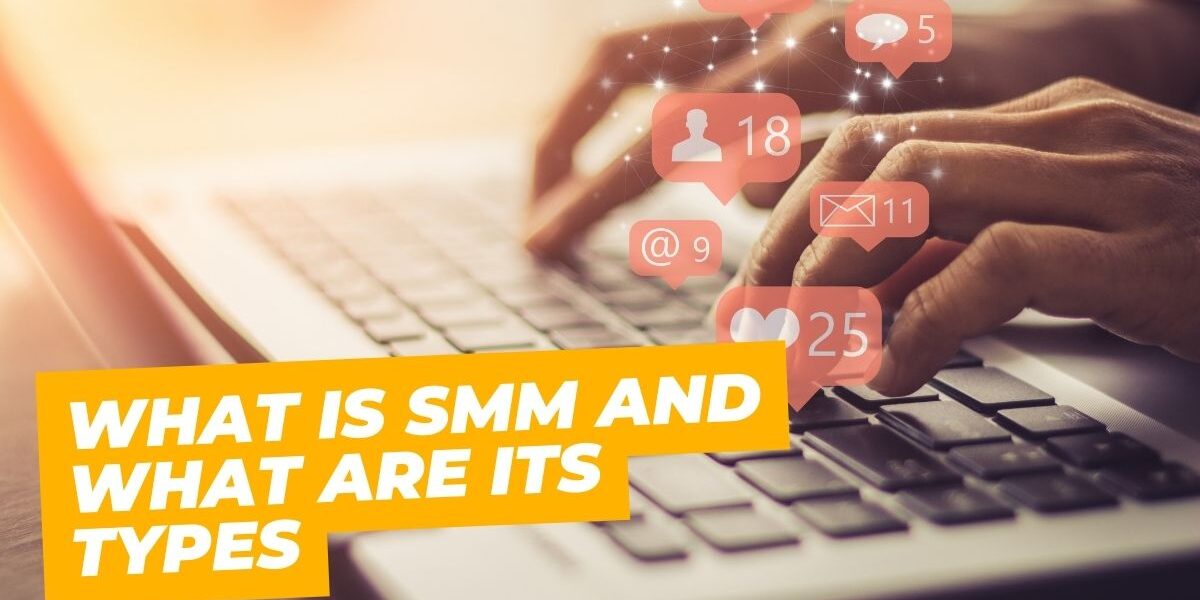Social Media Marketing, or SMM, has become an integral part of digital marketing in recent years. With billions of people using social media platforms daily, businesses can no longer afford to ignore the potential reach and engagement offered by these platforms. But what exactly is SMM, and what are its types?
In this comprehensive guide, we will explore the different types of SMM, how they work, and their benefits and challenges. So if you’re looking to enhance your digital marketing efforts, read on to learn more about SMM types.
What is SMM?
Social Media Marketing (SMM) refers to the process of promoting a brand or product on social media platforms. SMM involves creating and sharing content on social media channels, engaging with followers, and running social media campaigns to achieve marketing objectives. SMM can be used to increase brand awareness, drive traffic to a website, generate leads, and boost sales.
Why is SMM important?
Social media has billions of active users, making it an ideal platform to reach a wide audience. SMM allows brands to connect with their target audience on a personal level, build relationships, and increase engagement. Social media platforms provide businesses with valuable insights into their customers’ behavior and preferences, enabling them to tailor their marketing efforts accordingly. SMM is also cost-effective, making it an attractive marketing strategy for small businesses and startups.
Types of SMM
There are several types of SMM strategies that businesses can use to promote their brand and products. Let’s take a look at some of the most common types of SMM.
Paid Social Media Advertising
Paid social media advertising involves paying to display ads on social media platforms. These ads can be targeted to specific demographics, interests, behaviors, and locations. Paid social media advertising can be a highly effective way to reach a large audience quickly. Popular social media platforms for paid advertising include Facebook, Instagram, Twitter, LinkedIn, and Snapchat.
Organic Social Media Marketing
Organic social media marketing involves creating and sharing content on social media platforms without paying for advertising. This type of social media marketing focuses on building a loyal following, increasing engagement, and driving traffic to a website. Organic social media marketing can be time-consuming, but it can also be highly effective in building brand awareness and customer loyalty.
Influencer Marketing
Influencer marketing involves partnering with social media influencers to promote products or services. This type of marketing leverages the influencer’s large following and credibility to promote a brand or product. Influencer marketing can be a highly effective way to reach a specific target audience and increase brand awareness.
Strategies for Successful SMM
To run a successful SMM campaign, businesses must develop a clear strategy that aligns with their marketing objectives. The following strategies can help businesses achieve their SMM goals:
- Define the target audience and create content that resonates with them.
- Choose the right social media platforms to reach the target audience.
- Use social media analytics to measure the success of SMM campaigns and adjust strategies accordingly.
- Create a content calendar and schedule posts in advance.
- Engage with followers and respond to comments and messages promptly.
- Use social media advertising to reach a larger audience.
Key Metrics for Measuring SMM Success
To measure the success of an SMM campaign, businesses must track and analyze key metrics. Some of the most important metrics to measure include:
- Engagement: the number of likes, comments, shares, and clicks on the content.
- Conversion: the number of people who took the desired action, such as making a purchase, filling out a form, or subscribing to a newsletter.
- Referral Traffic: the amount of traffic to a website from social media platforms.
By tracking these metrics, businesses can determine the effectiveness of their SMM campaigns and adjust their strategies accordingly.
Benefits of SMM
SMM offers several benefits to businesses, including:
- Increased brand awareness: Social media platforms have billions of active users, making it an ideal platform to reach a wide audience and increase brand awareness.
- Enhanced customer engagement: SMM allows businesses to interact with their customers on a personal level, building relationships and increasing engagement.
- Cost-effective: SMM is generally more cost-effective than traditional marketing strategies such as TV or print advertising.
- Valuable insights: Social media platforms provide businesses with valuable insights into their customers’ behavior and preferences, enabling them to tailor their marketing efforts accordingly.
Challenges of SMM
While SMM offers many benefits, it also comes with its fair share of challenges, including:
- Managing multiple social media platforms can be time-consuming and overwhelming.
- Creating engaging content that resonates with the target audience can be challenging.
- Maintaining consistent branding across all social media platforms can be difficult.
- Keeping up with ever-changing algorithms and trends on social media platforms can be challenging.
The Future of SMM
As social media continues to evolve, so too will SMM. Some of the trends that are likely to shape the future of SMM include:
- The rise of video content: Video content is becoming increasingly popular on social media platforms, and businesses will need to incorporate video into their SMM strategies to stay relevant.
- Increased use of chatbots: Chatbots can provide quick and personalized responses to customers’ inquiries, and their use is likely to increase in SMM.
- The importance of user-generated content: User-generated content can be highly effective in building brand awareness and customer loyalty, and businesses will need to encourage their customers to create and share content on social media platforms.
Conclusion
Social Media Marketing is a powerful marketing strategy that can help businesses reach a wide audience, increase brand awareness, and build relationships with their customers. By understanding the different types of SMM and developing a clear strategy, businesses can leverage the power of social media to achieve their marketing objectives. While SMM comes with its challenges, the benefits far outweigh the drawbacks, making it an essential component of any modern marketing strategy.
Paid social media marketing involves paying to display ads on social media platforms, while organic social media marketing involves creating and sharing content without paying for advertising.
The success of SMM campaigns can be measured by tracking metrics such as reach, engagement, conversion, and referral traffic.
Strategies for successful SMM include defining the target audience, choosing the right social media platforms, using social media analytics, creating a content calendar, engaging with followers, and using social media advertising.
The benefits of SMM include increased brand awareness, enhanced customer engagement, cost-effectiveness, and valuable insights into customers’ behavior and preferences.
Future trends in SMM include the rise of video content, increased use of chatbots, and the importance of user-generated content.


